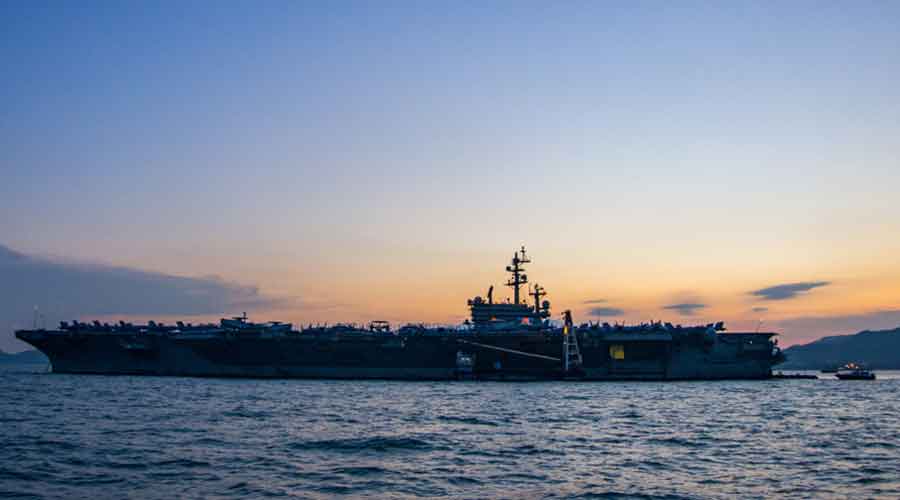China’s former leader, Deng Xiaoping, famously used an old proverb to describe the country’s foreign policy after the end of the Cold War: “Hide our strength, bide our time.” Those days are long gone.
China now faces a world that increasingly views its economic and military might as a threat that must be confronted, as Nato’s leaders made clear in their summit in Brussels.
While China poses virtually no direct military threat to Europe, which is Nato’s home field, it can now flex its military power in ways that were unimaginable only a few years ago — not only in Asia, but also globally.
Chinese officials reacted to Nato’s declaration with anger and scorn, accusing the alliance of recycling outdated Cold War strategies. A spokesman for China’s foreign ministry warned on Tuesday that forming cliques and forcing countries to choose sides were strategies doomed to fail.
Even as Nato leaders met in Brussels, the American aircraft carrier Ronald Reagan and several other warships moved into the disputed waters of the South China Sea, with the group’s commander, Rear Admiral Will Pennington, vowing to protect “international law and rules-based order”, wording that echoed Nato’s communiqué. Hours later, 28 Chinese fighter jets and other aircraft — the largest fleet in years — conducted their own show of force over waters south of Taiwan.
Only days before, the Group of 7 leaders, meeting in Cornwall, England, had for the first time issued a statement on Taiwan, calling for China to support peace and stability across the Taiwan Strait following a series of menacing Chinese operations like those on Tuesday.
The declarations by the Group of 7 and Nato are in part the fruition of President Biden’s strategy to build a coalition of like-minded nations to confront China over its activities.
Though largely symbolic, for now, they have for Beijing deepened a sense of crisis in relations with the US that now threatens to expand to Europe. China’s leader, Xi Jinping, and senior diplomats have tried to thwart such an alliance from coalescing with a series of meetings and video conferences with European leaders in recent months.
New York Times News Service










